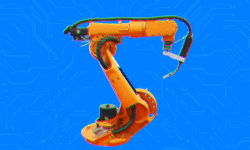The consumer and retail (C&R) industry is a dynamic space that, today, encompasses everything from e-commerce to brick-and-mortar stores and consumer goods (i.e., staples, discretionary, etc.). In recent years, it has witnessed a significant transformation with the emergence of generative AI (genAI), or the use of artificial intelligence algorithms to create new and original content, such as images, videos, and text.
The advent of genAI has had a profound impact within the industry—transforming marketing strategies, supply chain management, customer support, and business enablement—and has given many retailers and manufacturers a competitive edge in a rapidly evolving market. As genAI continues to evolve, and new integrations and applications leveraging this new technology are introduced to the market, leaders of the industry can expect genAI to play an increasingly central role in business and operations strategies.
Consumer Staples Sector
Consumer Discretionary Sector
Within the AlphaSense platform, we’ve noticed a 33% increase in documents mentioning “genAI” from the Consumer Staples sector and a nearly 29% increase from the Consumer Discretionary sector over the past year.
Already, we’ve noticed an uptick in documentation around mentions of “genAI” within both the consumer staples and consumer discretionary sectors. Below, we’ve taken a closer look at the conversations experts and C-Suite executives are having surrounding this iteration of AI. From its proposed applications and benefits, to its potential risks and future outlook, we’ve compiled the most crucial information to keep you informed on how this groundbreaking technology is disrupting the C&R space.
GenAI Use Cases in Consumer and Retail
Internal Efficiency
There’s no shortage of enthusiasm for genAI, as 72% of retail decision-makers are ready to implement genAI technologies in 2024, according to a Google Cloud survey. But what exactly is causing this pandemonium in the consumer and retail industry?
Through its ability to automate repetitive tasks and processes, genAI can help retail businesses save time, money, and resources. For example, generative AI algorithms can be used to automatically generate product descriptions or create social media posts, reducing the manual effort required by marketing teams. This allows employees to focus on more strategic and value-added activities, ultimately increasing overall productivity.
“Generative AI can substantially increase labor productivity across the economy, but that will require investments to support workers as they shift work activities or change jobs. Generative AI could enable labor productivity growth of 0.1 to 0.6 percent annually through 2040, depending on the rate of technology adoption and redeployment of worker time into other activities,” McKinsey reports.
Personalized Shopping Experiences
What is the value of a personalized experience for each individual customer or shopper? According to a 2020 study from KIBO, Monetate and Certona titled “The Rise of Personalized Commerce,” 70% of companies that use advanced personalization have already earned 200% ROI or more.
By analyzing customer data, such as purchase history, browsing behavior, and preferences, generative AI algorithms can create personalized recommendations and offers. This enables retailers to deliver targeted content and promotions to individual customers, enhancing their shopping experience and increasing the likelihood of conversion.
“According to a Microsoft-commissioned study through IDC, retail organizations are realizing the profitability of their AI investments within 14 months, with most seeing an average return of $3.45 for every $1.”
– Microsoft | Press Release
Smart Product Recommendations
Generative AI algorithms have the ability to analyze vast amounts of data to generate smart product recommendations. By considering factors such as customer preferences, purchase history, and trending products, retailers can leverage generative AI to suggest relevant and complementary products to their customers. This not only improves customer satisfaction but also increases cross-selling and upselling opportunities, ultimately driving revenue growth.
Streamlined Supply Chain Operations
Based on a 2022 study from EY, 40% of supply chains are investing in genAI and it’s clear why nearly half of all operations are doing so. Generative AI algorithms can analyze historical sales data, market trends, and external factors, as well as accurately forecast demand and optimize inventory management. This helps businesses reduce stockouts, minimize excess inventory, streamline their supply chain processes, and even negotiate with vendors.
“US retailers built bots using generative AI to negotiate cost and purchasing terms with vendors in a shorter time frame, noting that this early effort has already reduced costs by bringing structure to complex tender processes. The technology presents the opportunity to do more with less, and when vendors were asked how the bot performed, over 65% preferred negotiating with it instead of with a human at the company. We have also seen instances where companies are using generative AI tools to negotiate against each other,” EY reported.
Better Product Development
Product development is a daunting job, with the odds stacked against most companies who introduce an innovation to the market. According to the Harvard Business Review, 30,000 new products are launched into the market for customers’ attention each year, but almost 95% of them are likely to fail. Furthermore, 1 out of 5 products fails to meet customer expectations, making a well-performing product manager, a great product vision, and a solid launch even more critical, 280 Group Survey reports.
To combat these challenges, generative AI can be leveraged to improve the product development processes for retailers. By analyzing customer feedback, market trends, and competitor data, generative AI algorithms can generate insights and recommendations for product enhancements and innovations. This enables businesses to develop products that better meet customer needs and preferences, leading to increased customer satisfaction and market competitiveness.
Actionable Business Insights
Generative AI algorithms can quickly analyze vast amounts of data and generate actionable business insights. By processing data from various sources, such as sales data, customer feedback, and market trends, genAI can identify patterns, trends, and correlations that may not be immediately apparent to human analysts. The end product: businesses make more data-driven decisions, optimize their strategies, and identify new growth opportunities within the C&R space.
Benefits of Generative AI
Boosts Innovation
Generative AI technology enables businesses in the consumer and retail industry to push the boundaries of innovation. By leveraging advanced algorithms and machine learning, companies can generate new and creative ideas, leading to the development of unique products and services.
More Personalization
It’s no mystery that securing customer loyalty in retail is key to creating an efficient, effective shopping experience for consumers. GenAI has the potential to not only streamline but improve the pipeline from product purchase to delivery for customers. According to IDC analysts, order tracking is one of the best ways retailers can integrate genAI, with chatbots using natural language models more efficiently in order to provide order status updates via phone, chat, and social media in 80% of situations without human support.
Forbes recently shared how retailers are leveraging genAI avatars to connect with consumers, calling these bots the newest iterations of “influencers” for demographics like Gen Z.
“CPG companies and retailers can use GenAI to further personalize reach with varying demographic behaviors. For instance, online influencers are trusted by some demographics, Gen-Z in particular, and so we’re seeing smaller brands using AI to develop avatars or virtual influencers to extend reach across new social media channels.”
Greater Empowerment with Data Insights
Generative AI provides businesses with powerful data insights that can drive informed decision-making. This iteration of AI technology can uncover valuable patterns, trends, and correlations, enabling companies to make data-driven decisions and gain a competitive edge in the C&R industry.
“Back kind of inside the customer data and what can we do with generative AI and AI machine learning to help us realize key insights faster and apply those insights into our physical and digital business sooner so that when the customer gives us a signal, it doesn’t take us so long to identify the signal and ultimately put it into practice.”
– Walmart | Conference Transcript, December 2023
Risks and Drawbacks of Generative AI
Reputational Concerns
While proponents have lauded the potential applications of genAI as a way to solve some of the industry’s biggest problems, it’s important to keep in mind that there is virtually no national government oversight over how public or private companies wield this technology. In other words, the lack of federal and legislative intervention to ensure these programs aren’t encoded, consciously or unconsciously, with structural biases, leaves room for risks.
As AI algorithms generate content, there is a possibility of producing inaccurate or inappropriate information that could damage a company’s reputation. The Capgemini Research Institute reports that nearly two-thirds of consumers (62%) are worried about genAI generating false or misleading testimonials or reviews. Similarly, 61% of consumers aware of AI are concerned that bias in genAI models could result in unrepresentative outcomes.
Therefore, it is crucial to carefully monitor and review the output of generative AI systems to mitigate this risk.
Customer Data Privacy and Security Concerns
Another significant risk associated with generative AI in C&R is customer data privacy and security. Since genAI innovations and integrations are still rolling out, the lines between cybersecurity and genAI applications have yet to be fully drawn, raising concerns about the protection and misuse of sensitive customer information. It becomes essential then that companies prioritize robust data protection measures and ensure compliance with relevant privacy regulations.
Lacking a Human-Centric Element
While generative AI offers numerous benefits, it also poses the risk of missing out on the human-to-human element of shopping that many consumers value. Many customers prefer the personalized assistance and interaction they receive from human shopping assistants. Relying solely on AI-generated content may result in a loss of the personal touch and human connection that can enhance the shopping experience.
Ultimately, genAI-enabled service experiences can “make customers feel less connected and isolated” because of the lack of human interaction, Science Direct reports. For instance, as supermarkets have increasingly adopted self-checkouts, there has been a growing acknowledgment of the value that human staff bring to the checkout experience. Dutch supermarket Jumbo has introduced “slow and chat” checkouts to offer more human interaction for elderly customers, addressing rising levels of loneliness.
The Future of Generative AI in Consumer and Retail
In the consumer and retail industry, the future of generative AI holds immense potential, with a growing number of businesses eager to implement these technologies. Internal efficiency, increased labor productivity, streamlined supply chain operations, improved customer service, optimized inventory—the list of possibilities genAI can bring is endless for C&R leaders.
However, the use of generative AI also poses risks, such as reputational concerns due to the possibility of generating inaccurate or inappropriate content. Additionally, there are concerns about customer data privacy and security, as AI systems require access to large amounts of customer data to generate personalized content. Despite these challenges, the future of generative AI in the consumer and retail industry looks promising, with its potential to drive innovation, enhance customer experiences, and improve operational efficiency.
Gain a Competitive Edge with AlphaSense
In a volatile market that’s producing new developments around genAI every day, it’s challenging to decipher what technology, product, or insight could revolutionize the C&R industry next. Cutting through the noise to find insights is nearly impossible in the age of information overload. You need a tool that does all of the heavy lifting, so you can focus on leveraging information rather than searching for it.
AlphaSense is a leading provider of market intelligence, including 10,000+ high-quality content sources from more than 1,500 leading research providers—all in a single platform. Analysts, researchers, and decision-makers in the consumer and retail sector can access exclusive research reports only found elsewhere in disparate locations and often behind expensive paywalls. With AlphaSense, companies can conduct comprehensive research that gives them a competitive edge with smarter, more confident decision-making.
Specific types of content you’ll find on the AlphaSense platform include:
- News, company reports, global and SEC filings, ESG reports, earnings call transcripts, industry reports, government and trade publications, and press releases
- Over 1,500 research providers including Wall Street Insights®, a premier and exclusive equity research collection for corporate teams
- Expert call transcript library that gives access to thousands of insightful interviews with former employees, customers, competitors, and C&R industry experts
The AlphaSense platform also delivers unmatched AI search capabilities and features for analyzing qualitative and quantitative research, and can mine unstructured data for the most critical insights, including:
- Automated and customizable alerts for tracking regulatory filings, companies, industries, and potential investments
- Table export tools that support M&A workflows like target lists and due diligence
- Smart Synonyms™ technology that ensures you never miss a source important to your research
- Sentiment Analysis, an NLP-based feature that identifies and color-codes positive, negative, and neutral sentiment in every document
- Smart Summaries, our first generative AI feature, summarizes key insights from earnings calls for faster analysis
Stay ahead of the rapidly evolving consumer and retail landscape and get your competitive edge with AlphaSense. Start your free trial today.






